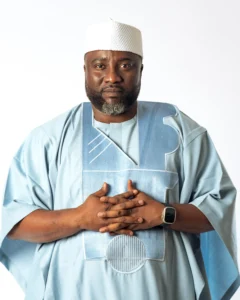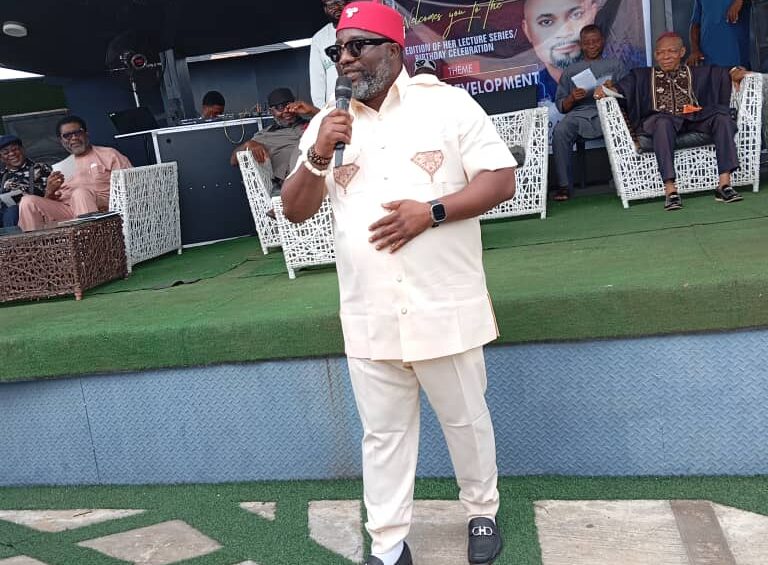By: Harriet Ijeomah
In a bold call for systemic change, Dr. Chima Matthew Amadi, founder of the Jude and Juliana Foundation, emphasized the urgent need to tackle unemployment from its roots by addressing the psychological and socio-economic triggers driving youth restiveness in Nigeria.

Dr. Amadi made this passionate appeal during his keynote address at the 4th edition of the Public Lecture and Empowerment Programme organized by the Prof. Uzoma Foundation for Justice and Equity, held in Owerri, Imo State, on April 26, 2025.
Speaking on the theme “Youth Development and Nation Building,” the Ngor-Okpala-born humanitarian stressed that many crimes and acts of social unrest committed by Nigerian youths are not merely acts of delinquency but symptoms of deeper psychological issues and trauma, exacerbated by widespread hunger and poverty.
“When young people are left in hunger and hopelessness, their minds become fertile grounds for negative vices like internet fraud, theft, drug abuse, and political thuggery,” Dr. Amadi warned.
Recent data by the Nigerian National Bureau of Statistics (NBS) reveals that while youth unemployment fell to 6.5% in the second quarter of 2024—down from 8.4% earlier in the year—the deeper challenge lies in underemployment and emotional vulnerability. Over 14.4% of Nigerian youth were classified as NEET (Not in Employment, Education, or Training) as of Q1 2024, highlighting a worrying disconnect between youth potential and national development.
Dr. Amadi criticized the exploitation of young people as political thugs, social media “hypemen,” and blind followers of political elites. He argued that without addressing the underlying psychological, educational, and economic gaps, Nigeria risks breeding a generation lost to crime, restiveness, and unproductive ventures.
“We must stop glamorizing survival tactics that destroy destinies. Youths are not pawns for political gains—they are the builders of the future. To empower them effectively, we must confront the trauma and hunger they face daily,” he said.
He called for empowerment initiatives that are sustainable and impact-driven, urging non-profits, government agencies, and private sector actors to design frameworks that genuinely foster economic independence and emotional resilience among youth.
In a country where over 60% of the population is below the age of 25, and where approximately 33% faced unemployment challenges just a few years ago, Dr. Amadi’s call resonates strongly. Analysts have long argued that the youth bulge, if left untapped, could either become Nigeria’s greatest asset or its most significant security threat.
Dr. Amadi concluded by urging young Nigerians to maximize their talents and skills toward productive activities that contribute to nation-building rather than crime.
“Youths must see themselves as the solution, not the problem. Your hands, your skills, and your minds are needed more than ever to reconstruct Nigeria’s future,” he encouraged.
The lecture series in Owerri not only provided a platform to highlight these critical issues but also reflected the ongoing efforts of civil society to bridge the gap between policy and grassroots realities in Nigeria’s quest for sustainable development.





